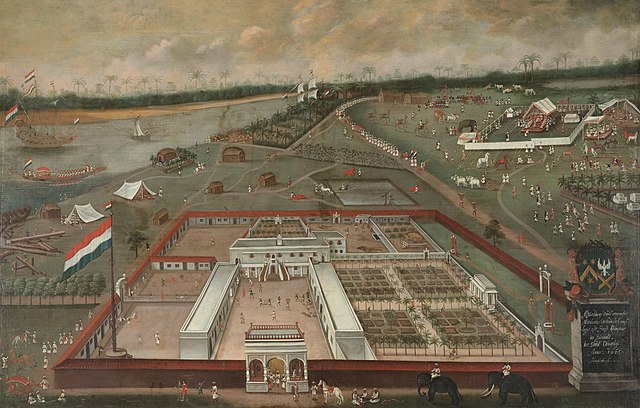Colonialism is the pursuing, establishing and maintaining of control and exploitation of people and of resources by a foreign group of people. Implemented through the establishment of coloniality and possibly colonies, this colonization keeps colonized territory and people socio-economically othered and subaltern to colonizers and their metropole. While frequently advanced as an imperialist regime, colonialism can also take the form of settler colonialism, whereby colonial settlers invade and occupy territory to permanently replace an existing society with that of the colonizers, possibly towards a genocide of native populations.
A factory entrepôt, a basic example of colonialism illustrating its different elements, hierarchies and impact on the land and people (the Dutch V.O.C. factory in Hugli-Chuchura, Bengal, in 1665)
The East Offering its Riches to Britannia, painted by Spiridione Roma for the boardroom of the British East India Company
Dutch family in Java, 1927
Harbour Street, Kingston, Jamaica, c. 1820
Colonization is a process of establishing control over foreign territories or peoples for the purpose of exploitation and possibly settlement, setting up coloniality and often colonies, commonly pursued and maintained by colonialism.
A protest sign from the second half of the 20th century criticising U.N. reaction to Soviet colonial expansion
A protest sign from the second half of the 20th century calling on U.N. to abolish Soviet colonialism in the Baltic states
Sign on the JAO government headquarters
Artist conception of astronauts working outside, near a large modular habitat








